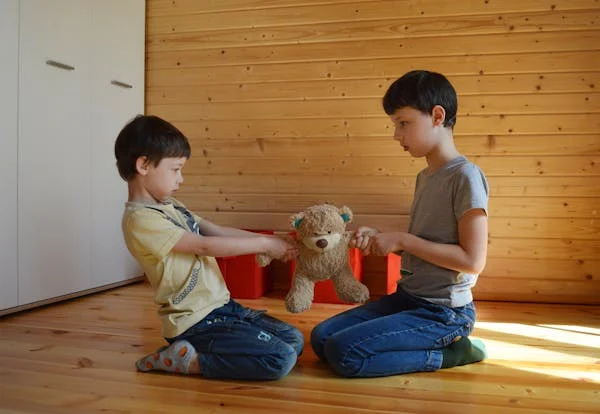Parenting is a fun-filled journey that has its own set of challenges and is a constant learning process. Parents and caregivers must understand the psychological aspects of child development well to support a child’s holistic growth.

It is important to understand the child psychology behind a child’s behaviors, needs, and emotions well to understand how to react to a given situation. Let us explore some fascinating facts about child psychology so that we can foster a healthy and supportive environment for children to thrive in.
Key Insights into Child Development and Parenting Practices for Improved Child Psychology
The early years of an individual’s life are crucial for shaping the brain, behavior, and emotions. Let us look at some of the key factors ranging from attachment and play to praise and routine, each of which is important for a child’s healthy well-being.
The Importance of Early Experience
By the time a child turns 5, 90% of the brain is already developed. This lays stress on the importance of the first few years of a child’s life. At this stage of development, the brain forms neural connections. It is also influenced by interactions with the people and environment around them.
Positive experiences like play, reading, and responsive caregiving can positively impact a child’s emotional and cognitive development. Parents and caregivers should carefully monitor what their kids are exposed to. Parents should try to engage in nurturing activities and provide their children with a stimulating environment from an early stage to ensure optimal brain development. These early experiences are foundational principles in child psychology.
How Play Impacts Development
Play is not just a fun activity; it is an important aspect of development. It allows children to develop cognitive skills, explore the world, express their emotions, and enhance social interaction.
Children can engage in different kinds of play, like social play, imaginative play, and physical play. All of these contribute to a child’s holistic growth and support development. In the study of child psychology, play is recognized as a powerful tool for emotional and cognitive learning.
The Importance of Encouragement and Praise
The way you encourage and praise your children has a significant impact on their motivation and mindset. Studies have shown that praising children’s efforts rather than their inherent abilities fosters resilience and develops their ability to tackle challenges.
Children who harbor the idea that their abilities can be developed through effort are more capable of persisting in difficult situations. Therefore, in order to cultivate a growth mindset, it is ideal to praise the efforts of children and encourage them to perform better.
Developing Children’s Emotional Intelligence
Emotional intelligence refers to a child’s ability to understand, recognize, and manage emotions, both their own as well as others’. A child who has high emotional intelligence has better mental health, is good at managing relationships, and performs better academically.

When you teach children to identify and express their emotions and understand those of others, it enhances their social and emotional well-being. Therefore, open discussions about feelings with your children are highly encouraged. Teaching emotional awareness is a major theme in child psychology.
Best Practices for Implementing These Insights in Children
How to ensure a child’s healthy mental development? Here are some tips:
- Create a nurturing environment: The environment that a child is growing up in has an impact on their psychology. Make sure that the environment that a child is growing up in is safe, stimulating, and loving. They should be engaged in activities that promote learning and bonding. Experts in child psychology emphasize the role of consistent, positive environments.
- Spend enough time with your child: Parents and caregivers should be present and responsive. They should actively listen to their children’s needs and respond to them. This builds an attachment and instills a sense of safety and trust among the children.
- Set clear boundaries for screen time: Limit and guide your child’s screen time. Make sure that it does not replace your child’s physical activity, family interactions, or play. Not only this, but it is also important that parents and caregivers choose the kind of content that a child may be viewing. It is advisable to choose interactive or educational content.
- Manage your stress and maintain positive behavior: Your child’s psychological development is directly associated with your emotional well-being. Try to practice self-care; seek support whenever you feel overwhelmed. Demonstrate the behaviors that you want your child to acquire. Try to inculcate feelings like kindness, empathy, effective problem-solving, etc.
Conclusion
Gaining a deeper understanding of child psychology can significantly enhance your parenting journey. By applying these insights—whether it’s encouraging emotional expression, fostering a growth mindset, or being mindful of your stress—you lay the groundwork for your child’s long-term emotional and cognitive well-being. Small, consistent actions can make a big difference in helping children feel secure, supported, and ready to thrive.

Parenting isn’t about perfection; it’s about presence, patience, and progress. Stay engaged, stay curious, and remember that every step you take toward understanding your child better is a step toward building a stronger bond.
